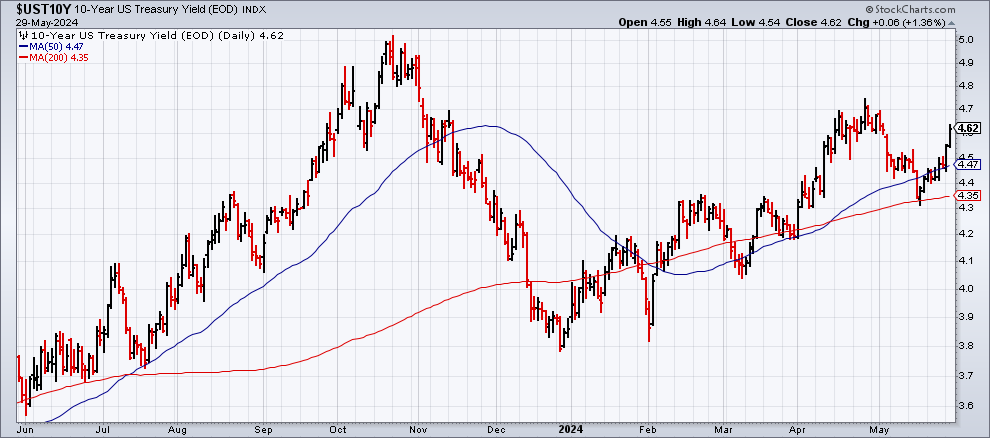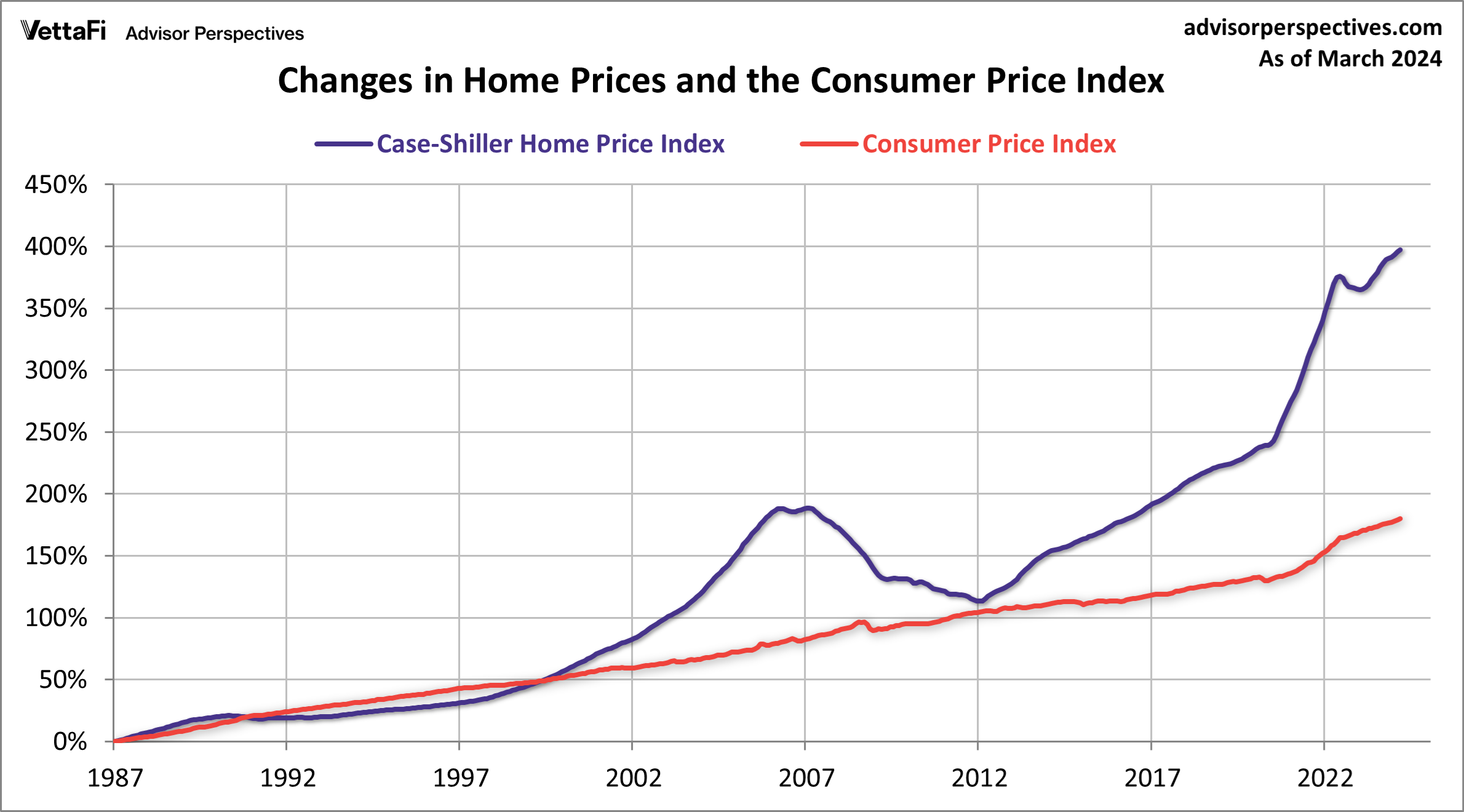US economic growth rose a modest 1.3% in the first quarter, a softer increase vs. the government’s initial 1.6% estimate. The revised data reflects a sluggish pace of growth and the second straight quarterly downshift. But the current nowcast for Q2 suggests that output will stabilize if not strengthen, based on the median for a set of estimates compiled by CapitalSpectator.com.
Monthly Archives: May 2024
Macro Briefing: 31 May 2024
* Opec set to meet amid cartel’s limited influence on oil market
* Senate Democrats call for Big-Oil probe over price fixing
* AI-related data centers may use 9% of US electric supply by 2030, study finds
* Pending home sales in US slump to lowest level since pandemic’s start
* US jobless claims edged up last week but remain low
* US Q1 GDP growth revised down a sluggish 1.3%:
Will Fed’s Preferred Inflation Gauge Tick Lower In Friday’s Update?
Tomorrow’s update on US inflation for April looks set to tick lower, although the odds aren’t trivial that pricing pressure will remains sticky, according to various forecasts and a review of pricing trends published to date. Disinflation is still intact, based on numbers in hand, but the report scheduled for Friday, May 31, will probably show limited progress on taming inflation.
Macro Briefing: 30 May 2024
* US economy continues expanding, Fed’s Beige Book reports
* Extreme heat will slow US growth, San Francisco Fed study predicts
* Lingering inflation pressures are preventing Fed from cutting rates
* German inflation rises more than forecast ahead of ECB rate decision
* US 10yr yield rises above 4.6% for first time in over a month:
Africa Stocks Take Lead For Global Equities Market In 2024
After a punishing start to the year, shares in Africa have rebounded and are now the leading performer for the global stock market in 2024, based on a set of ETFs tracking the world’s main regions through yesterday’s close (May 28).
Macro Briefing: 29 May 2024
* Robust earnings outlook is a key factor for stock market optimism
* IMF lifts China economic forecast to 5%, up from 4.6%
* US consumer confidence index rises in May–first increase in four months
* Low stock market volatility may be underpricing risk
* Texas manufacturing activity weakens slightly in May
* US home prices rise to a new record high in March:
US Economic Data Still Reflect Low Recession Risk — Will It Last?
A broad set of US economic indicators continue to show that the odds are low that an NBER-defined recession has started or is imminent. This profile upends the dark narrative favored in some quarters. There are possible warning signs brewing on the horizon, but the case for expecting trouble is still weak, according to the numbers.
Macro Briefing: 28 May 2024
* US stock market was far more concentrated in the 1950s and 1960s vs today
* Global debt nears 100% of global GDP–highest since the Napoleonic Wars
* European Central Bank signals it’s likely to cut interest rates on June 6
* China is a tough act to match in the West for achieving parity in manufacturing
* Fed’s Kashkari wants ‘many more months’ of good inflation data before rate cut
* US durable goods orders stagnate for 1-year trend through April:
Happy Memorial Day 2024!
Book Bits: 25 May 2024
 ● Shock Values: Prices and Inflation in American Democracy
● Shock Values: Prices and Inflation in American Democracy
Carola Binder
Interview with author via Marketplace.org
The word “inflation” is everywhere today, and it continues to shape how people feel about the economy. That’s the case despite the pace of inflation retreating from its high of June 2022, when prices were up nearly 9% from the year before, as measured by the consumer price index. Last month, prices were up only 3.4% on an annual basis. While it’s easy to think those feelings are unique, inflation has long been a top concern for Americans, going back to the founding of the country. One key thing that’s changed is how the government has intervened in the movement of prices… In her book, “Shock Values: Prices and Inflation in American Democracy,” Binder looks back at the long history of politics, inflation and how the government has tried to respond, at times through fiscal policy like price controls, at others with monetary policy.




